US Negotiator Returns To Washington After Pause In Iran Talks
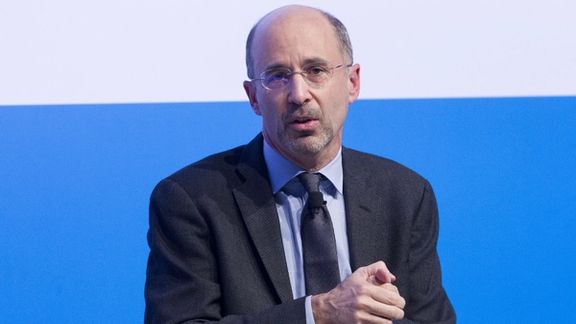
The State Department Friday said US negotiator Robert Malley and his team have returned to Washington after negotiations to reach an Iran nuclear deal paused.

The State Department Friday said US negotiator Robert Malley and his team have returned to Washington after negotiations to reach an Iran nuclear deal paused.
After 11 months of multilateral talks in Vienna diplomats have been insisting that a deal was at hand to revive the 2015 Iran nuclear agreement known as JCPOA, before Russia made last-minute demands on Saturday.
Moscow has asked for exemption from Ukraine sanctions in its economic and other relations with Iran. The US and its European allies have dismissed Russia's demand, saying sanctions imposed over the Ukraine invasion are not related to the Iran nuclear deal.
State Department spokesperson Ned Price also told reporters the United States continues to believe that a potential deal to return to the Iran nuclear agreement is close, but said decisions need to made in places like Tehran and Moscow.
Iran has been downplaying the Russian demand, claiming that Washington has not made its final decisions over the nuclear deal and has presented new demands.
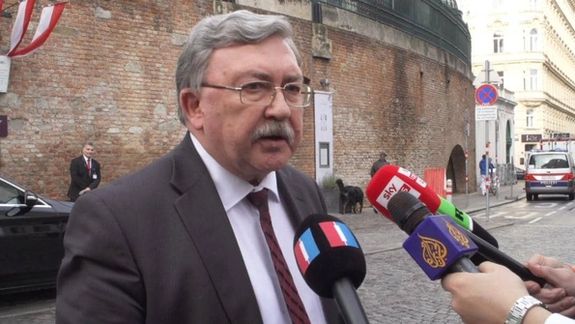
European powers reportedly refuse to exempt Moscow's trade with Tehran from sanctions over Ukraine, while the talks to revive the Iran nuclear deal have paused.
As the negotiations with Iran in Vienna paused on Friday, an E3 diplomat told Reuters that there will be no negotiation on a broad exemption for Russia about the trade guarantees it has requested for Iran, adding that world powers would need to look at other options if Moscow continued to block the process of the talks to restore the deal, Joint Comprehensive Plan of Action (JCPOA).
The diplomat accused Russia of taking the talks for restoring the JCPOA hostage and said there was “critical urgency” to conclude the deal as further external factors could also threaten it.
The US State Department told reporters Friday that its chief negotiator Rob Malley has returned to Washington for consultations as the Vienna talks have paused and decisions must be made in Tehran and Moscow.
The French and British envoys to the Vienna talks also said that the indefinite pause in the talks announced by European Union's Foreign Policy Chief Josep Borrel earlier on Friday were deeply disappointing. "External factors", presumably Russian demands for sanctions exemptions, that have held up the Iran nuclear talks must be resolved within days to prevent the process from collapsing. Details of Russian demands have not been disclosed yet.
"Fair and comprehensive deal on table - ready for conclusion. External factors must be resolved in next few days or agreement likely to unravel," the British envoy to the talks, Stephanie al-Qaq, wrote on Twitter.
The French envoy to the talks, Philippe Errera, also said in a tweet that a "good deal" was on the table and warned that there was a critical urgency to conclude a deal and a risk that failing that, the agreement would fall apart.
However, quoting a "source close to the Iranian negotiation team, Iran's official news agency, IRNA, claimed again that it was Washington that had caused a delay in finalizing the agreement by "indecision and making new demands". IRNA did not say what were Washington’s new demands.
"Meanwhile, there are also some issues such as the problems between Russia and the US that are irrelevant to the talks between Iran and 4+1 countries (France, Britain, Russia, China, and Germany) and Washington and Moscow must resolve among themselves," the source was quoted by IRNA as saying.
A deal without Russia, although theoretically possible, would further complicate the matters as Russia is the only world power cooperating with Iran on its nuclear projects including the building of nuclear power plants.
Russia also played a major role in the implementation of the JCPOA by taking the 3.67 percent uranium that Iran enriched beyond the 300 kg allowed by the 2015 agreement before Iran stopped shipping out enriched uranium in retaliation for US sanctions. Even if Iran the US talk directly, finding an alternative to fulfill Russia's role in the original JCPOA would not be easy or quick.
Sanctions over Ukraine and the ban on Russian oil imports by the US, Canada, and some other Western countries, including Japan, have driven oil prices to record highs in over a decade. Moscow is keen to keep the oil prices high but is not happy to surrender its share of the market to Tehran if an agreement in Vienna lifts the US sanctions imposed on Iranian crude oil sales in 2018.
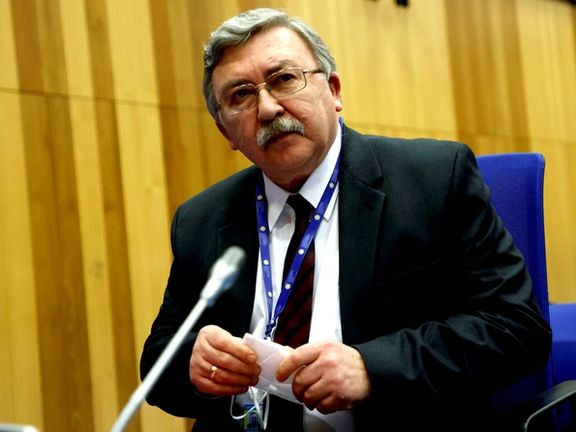
Following a pause in Iran nuclear talks, Russia’s lead envoy said negotiations will continue with all delegations during the pause to settle remaining issues.
Speaking to reporters at the venue of the negotiations in Vienna on Friday, Mikhail Ulyanov said he is not aware of the pause called by EU Foreign Policy chief Josep Borrell, presumably over Moscow’s demands, adding, “I’m not aware of any impasse. Break? The Europeans left Vienna a week ago.”
He implicitly rejected the idea that the reason behind the pause is Russia’s demands for a US guarantee that its ties with Iran should be exempted from Western sanctions imposed for the invasion of Ukraine, stating, “The conclusion of the deal doesn’t depend on Russia only”.
Calls for a pause in Iran's nuclear talks gathered momentum as both Tehran and the European Union hinted at a temporary break, with Borrell saying that a draft text is "essentially ready", but hampered by "external factors".
"As coordinator, I will, with my team, continue to be in touch with all JCPOA participants and the US to overcome the current situation and to close the agreement", Borrell said on his Twitter account.
Iran's foreign ministry spokesman Saeed Khatibzadeh shortly after Borrell's statement tweeted that a pause in the negotiations "could be a momentum for resolving any remaining issue and a final return."
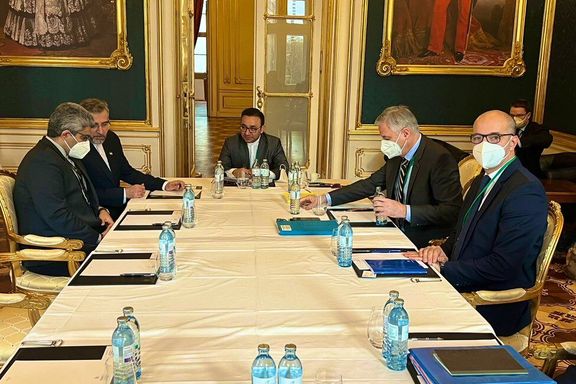
EU Foreign Policy chief Josep Borrell Friday called for a pause in Iran nuclear talks, saying that a draft text is "essentially ready", but hampered by "external factors".
Apparently referring to Moscow's demands to be exempted from sanctions over its invasion of Ukraine in its dealing with Iran, in a tweet Friday morning Borrell said a pause in Vienna talks is needed due to "external factors". He added that a "final text" to revive the deal, Joint Comprehensive Plan of Action (JCPOA), is "essentially ready and on the table."
"As coordinator, I will, with my team, continue to be in touch with all JCPOA participants and the US to overcome the current situation and to close the agreement," Borrell said.
Iran's foreign ministry spokesman Saeed Khatibzadeh shortly after Borrell's statement nodded agreement, tweeting that a pause in the negotiations "could be a momentum for resolving any remaining issue and a final return."
On Thursday the Politico said two diplomats have said that the talks in Vienna were on the precipice of collapse over last-minute Russian demands for exemption from sanctions.
Iran's official news agency IRNA Friday morning said "informed sources" have not confirmed the collapse of the Vienna talks, without mentioning the politico report. It also made no mention of Russian demands, blaming the US for delaying an agreement.
Iranian Foreign Minister Hossein Amir-Abdollahian also told Borrell in a phone call Thursday evening that the US is sending "mixed messages" to Iran and delaying the restoration of the JCPOA by introducing "new and unjustified but again did not make any mention of Moscow's demands.
He also insisted that Iran's demand for the lifting of sanctions on "[Iran's] national heroes", presumably the Revolutionary Guards (IRGC), was "non-negotiable". The former US administration designated the IRGC as a Foreign Terrorist Organization (FTO).
"No single party can determine end result; a joint endeavor is needed. Reason should prevail," the Iranian foreign minister tweeted after his phone call with Borrell, reiterating that a "good and durable agreement" was within reach if "the US acts realistically and consistently."
On Friday morning former Central Bank of Iran Governor Abdolnaser Hemmati in a tweet urged all Iranian official to support a quick deal with the US directly. "A hundred days ago I told [them] not to miss the opportunity for economic growth by 'negotiating with five different mediums [each with its own] interests'," he wrote, adding: "With the current oil prices the cost of delay in increasing crude oil exports is $4b [a month]."
A restored JCPOA would theoretically bring back Iranian fossil fuel to world markets but the energy infrastructures, both gas and oil, have been left in relative neglect in the past few years, particularly after the 2018 sanctions and it will take time, even years in the case of gas, to boost production.
The US State Department Spokesman Ned Price told reporters Thursday that a nuclear deal with Iran is "down to a small number of outstanding issues" which are nevertheless "among the most difficult ones" and stressed that Washington has urged all parties, including Russia, to focus on solving the final remaining issues.
However, he stressed that the "new Russia-related sanctions are wholly unrelated to the JCPOA" and Washington has "no intention of offering Russia anything new or specific" as it relates to the sanctions imposed for the invasion of Ukraine. "I will let the Russian Federation speak to what it is that they are seeking," he said.
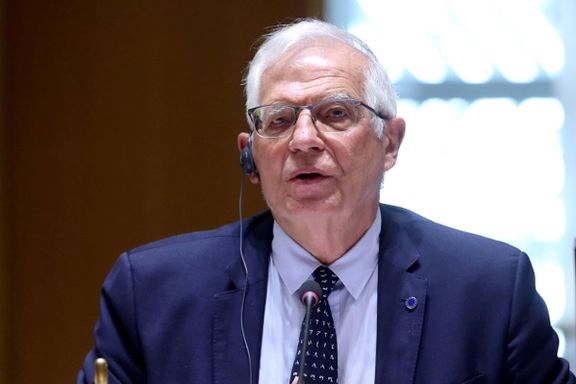
Calls for a pause in Iran's nuclear talks with world powers gathered momentum on Friday as both Tehran and the European Union hinted at a temporary break.
EU foreign policy chief Josep Borrell said on Friday a final text regarding the revival of the 2015 nuclear accord between Iran and world powers is "essentially ready and on the table" but a pause is needed in the talks due to "external factors."
Iran's foreign ministry spokesman Saeed Khatibzadeh shortly after Borrell's statement tweeted that a pause in the negotiations "could be a momentum for resolving any remaining issue and a final return."
The pause is apparently is the only option at a point where Russia has introduced its own demand in the talks, which requires a diplomatic solution. Moscow has demanded a guarantee from the United States that its ties with Iran should be exempted from Western sanctions imposed for the invasion of Ukraine.
"As coordinator, I will, with my team, continue to be in touch with all JCPOA participants and the US to overcome the current situation and to close the agreement", Borrell said on his Twitter account.
Other issues also remain to be solved between Washington and Tehran. State Department spokesman Ned Price said on Thursday that although few problems remain to be overcome, they are are important ones.
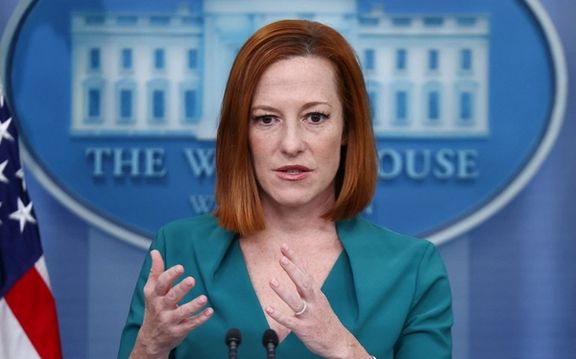
The White House said on Thursday the United States would continue to have diplomatic talks with Iran about a nuclear deal.
"Our view is that we are close. We have been close for some time now," White House spokesperson Jen Psaki said. "The end of negotiations is always when the difficult and challenging parts of the conversation typically take place."
Iran has refused to hold direct talks with the US. European countries and Russia have been acting as mediators in Vienna talks that began almost one year ago.
The United States and other participants in the Vienna talks have been repeatedly saying a deal is close in recent weeks. However, multilateral, formal session have ended in Vienna as diplomats say the time has come for political decisions.
The details of what issues still remain unresolved are not known, but Iran apparently has been demanding that its Revolutionary Guard be taken out of the US Foreign Terrorist Organization (FTO) designation.
Russia on Saturday introduced a new complicating factor into the already complex situation by demanding that its economic and other relations with Iran be exempted from sanctions imposed for of its invasion of Ukraine.